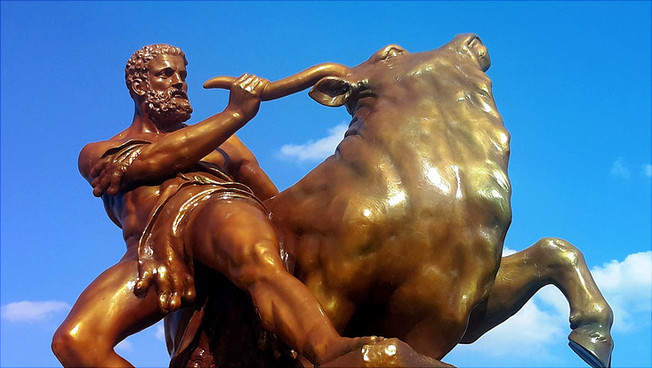26 March 2018
Focus on the concept of “force”:New DFG center for advanced study in the humanities and social sciences for Universität Hamburg

Photo: pixabay.com/travelspot
We usually only perceive forces when we witness their effects. This project investigates how forces are formed and visualized in images, metaphors, narratives, formulae, and simulations. As research to date has largely explored “force” as a central category in art and cultural theory within the confines of individual epochs, this project will offer a comprehensive reconstruction of the worlds of the imagination.
The focus lies not only on the arts and cultural studies, but consciously forges a connection to the natural sciences, in particular to biology. To achieve this, an interdisciplinary team headed up by Prof. Dr. Cornelia Zumbusch from the Institute for German Language and Literature, Prof. Dr. Frank Fehrenbach from the Art History Seminar, und Prof. Dr. Matthias Glaubrecht, director of the Center of Natural History (CeNak) at Universität Hamburg will work together. A fellowship program will bring researchers from further disciplines on board to investigate, for example, the visualization of religious, political, social, or psychological forces.
In addition to representations of force in art, literature, and forces at work in nature, the Center will focus on two further, currently topical forms of force: social force and mass-medially distributed representations and the cultural perception of change in the production and consumption of energy—a particular form of force.
Prof. Dr. Dieter Lenzen, President of Universität Hamburg: “Good people land great successes—in this case, the second DFG center for advanced study in the humanities and social sciences at Universität Hamburg. I am delighted for Professor Zumbusch, Professor Fehrenbach, and Professor Glaubrecht and wish the Center a “forceful” start!”
DFG centers for advanced studies are a funding instrument especially tailored to the working methods used in the humanities and the social sciences. Centers of advanced studies tackle topics that are broadly defined and cooperation between outstanding scientists and scholars is a key aspect of the funding program.
